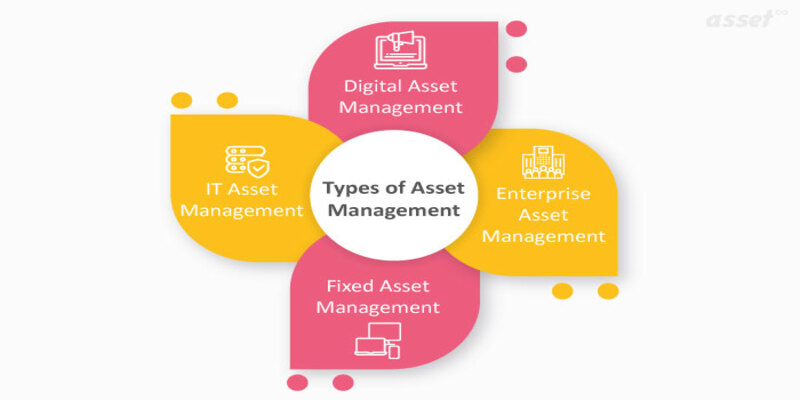Asset Management Company (AMC) is a financial firm that handles and invests money for other people, businesses, and organizations. Investments like stocks, bonds, property, and other forms of capital are all fair game. An AMC's primary mission is to aid its clientele in realizing their financial objectives by providing expert investment management services. Mutual funds, exchange-traded funds (ETFs), hedge funds, pension funds, and other investment vehicles are only some of the many products and services offered by AMCs. The needs of regular investors, high-net-worth individuals, and institutional investors are all considered in developing these investment vehicles. Professional investment managers are employed by AMCs and tasked with making investment decisions on their client's behalf based on their knowledge and experience.
Functions Of An Asset Management Company
Depending on the needs of its customers, an AMC may offer various services related to the management and investment of its assets. An AMC's main features include:
Investment Management
Investment management is the primary purpose of an AMC. As part of this service, client funds are invested in various financial instruments, including stocks, bonds, mutual funds, and other investment vehicles. The goal of AMC's investment managers is to maximize returns while minimizing risk, and they achieve this by undertaking comprehensive studies and analyses of various investment possibilities.
Portfolio Management
Portfolio management is another service provided by AMCs; it entails overseeing the investments of individual clients. The AMC's investment managers tailor clients' portfolios to their specific risk tolerance, long-term investment objectives, and financial resources.
Risk Management
Risk management is an essential part of any AMC's operations. To control and reduce the potential for loss, the investment managers at an AMC employ a wide range of strategies and methods. They analyze potential dangers, monitor the market, and make necessary changes to the investment portfolio to limit losses.
Client Servicing
Moreover, AMCs offer client servicing, which includes keeping clients up-to-date on their investments, performance, and other important information. Clients are given individualized assistance in the form of investment counseling and advice.
Types of Asset Management Companies
According to their organizational makeup, investing specialization, and target clientele, various types of AMCs exist. These are some examples of AMCs:
Mutual Fund Companies
Companies that manage and invest in mutual funds are known as asset management corporations (AMCs). They provide investors with various mutual fund products and collect a management fee depending on the value of the funds they oversee.
Pension Fund Managers

Asset management companies (AMCs) manage the administration and investment of pension plan assets. They must ensure the pension funds have enough money to pay out promised benefits to retirees.
Hedge Fund Managers
Hedge fund managers are alternative investment management companies. Hedge funds are a type of high-risk investment vehicle popular among large institutions and wealthy people.
Benefits Of Asset Management Companies:
Professional Expertise
One of the primary benefits of hiring an AMC is access to professional investment managers with extensive experience and expertise in managing and investing assets. They have access to cutting-edge resources and techniques that allow them to make calculated investment decisions and implement rigorous risk management strategies.
Diversification
AMCs offer clients access to a diversified portfolio of securities, which helps to spread risk and minimize losses. It is wise to apply for your money by investing in various industries, geographies, and asset classes to lessen the blow of market swings.
Customized Investment Solutions

sAMCs offer customized investment solutions tailored to their client's specific needs and goals. To build appropriate investment portfolios, investment managers collaborate closely with their clients to gain insight into their comfort level with risk, investment objectives, and current financial standing.
Cost-Effective
AMCs offer cost-effective investment solutions, particularly for small investors. AMCs can offer investment products and services at lower costs than would be possible for individual investors by combining several participants' funds and using economies of scale.
Transparency
AMCs offer transparency in investment management, providing clients regular updates on investments, performance reports, and other relevant information. Because of this openness, investors may evaluate AMC's performance and decide based on complete information.
Conclusion
A financial firm that manages and invests assets for individuals, organizations, and other entities is known as an "asset management company" (AMC). Investment management, portfolio management, risk management, and customer service are just some of the services that AMCs provide. Mutual funds, exchange-traded funds, systematic investment plans, and pension funds are only some of the provided investing options. To name just a few of the many ways in which AMCs improve their clients' lives, we can highlight the following: client access to professional expertise; diversification; investment solutions that are unique to each individual; cost-effectiveness; transparency; risk management; and lowered transaction costs. In general, an asset management company (AMC) is a reliable resource for investors needing sound advice and experience in the care and growth of their holdings.




